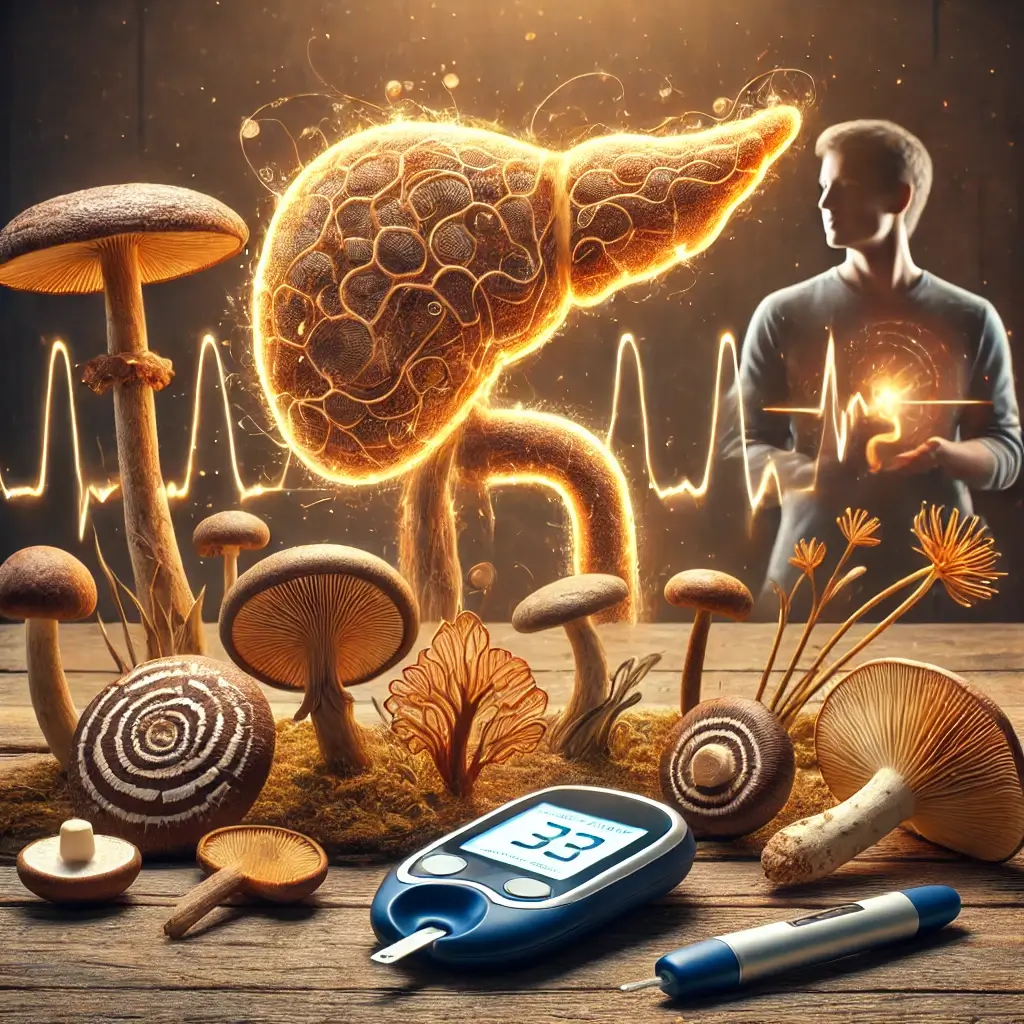The Foundation of Energy: Understanding Blood Sugar Balance
Keeping our blood sugar levels in check is an important part of keeping our bodies working right. The body gets most of its energy from glucose, which is a type of sugar. However, having too much or too little glucose in the blood can be bad for our health.
The Critical Role of Your Pancreas in Glucose Regulation
The pancreas is very important for keeping blood sugar levels in check. It makes insulin, a hormone that is needed for cells to take glucose from the blood and use it as fuel. When you eat, your blood sugar goes up. To help move glucose from the blood into cells, the pancreas produces insulin. Insulin also tells the liver to store extra glucose as glycogen so it can be used later.
The Balancing Act: How Your Body Regulates Blood Sugar
On the other hand, when blood sugar levels drop, the pancreas releases glucagon, which tells the liver to turn glycogen back into glucose and send it into the bloodstream. This helps to give the body energy and raise blood sugar levels.
When Blood Sugar Balance Goes Awry
But problems with controlling blood sugar can happen if the pancreas doesn’t make enough insulin or if cells stop responding to insulin. It’s possible for this to cause hyperglycemia, which is high blood sugar, which can hurt organs and cells over time. Hypoglycemia, on the other hand, high blood sugar levels can make you feel shaky, confused, or even lose consciousness.
Medicinal Mushrooms: Natural Allies for Blood Sugar Control
Some medical mushrooms can help keep blood sugar levels in check. People who have diabetes or are at risk for getting it should do this because long-term high blood sugar can hurt organs and blood vessels.
Powerful Mushroom Varieties That Support Glucose Balance
Some of the most well-known medical mushrooms for controlling blood sugar are
Reishi mushroom: It has been shown that reishi mushrooms lower blood sugar and make insulin work better.
Shiitake mushroom: A chemical in shiitake mushrooms called lentinan has been shown to lower blood sugar and make insulin work better.
There is a chemical in maitake mushrooms called alpha-glucosidase inhibitor that has been shown to slow down the intake of carbs and keep blood sugar from rising too quickly after a meal.
Cordyceps mushroom: It has been shown that cordyceps mushrooms lower blood sugar and make insulin work better.
How to Incorporate Medicinal Mushrooms Into Your Routine
You can take medicinal mushrooms in many forms, such as pills, powders, drinks, and extracts. You can also put them in drinks and food.
Consult Your Doctor Before Starting Any Supplement
Before you decide to take medical mushrooms to control your blood sugar, you should talk to your doctor. Some medicines may not work as well with medicinal mushrooms, so it’s important to know the risks and benefits before you take them.
Medicinal Mushrooms as Complementary Support, Not Cure
Also, it’s important to know that diabetes can’t be cured with medical mushrooms. If you have diabetes, it’s important to do what your doctor tells you and take your medicines as directed.
The Importance of Overall Blood Sugar Management
Keeping your blood sugar levels in a good range is important for your general health and well-being. Eating a healthy diet, staying active, and checking your blood sugar levels often can all help keep your blood sugar in check and keep you from getting sick from hyperglycemia or hypoglycemia.
Lifestyle Strategies for Optimal Blood Sugar Control
To help keep your blood sugar levels in check, you can also do the following:
Eat well by getting lots of fruits, veggies, and whole foods. Cut back on prepared foods, sugary drinks, and fats that are bad for you.
Regular exercise is important. Aim to do moderate-intensity exercise for at least 30 minutes most days of the week.
Stay at a healthy weight. Being overweight can make it hard to keep your blood sugar levels in check.
Aim for 7-8 hours of sleep every night.
You can lower your risk of getting problems from diabetes by taking steps to keep your blood sugar levels in check.
References
- Chang, C. J., Lin, C. S., Lu, C. C., et al. (2015). Ganoderma lucidum reduces obesity in mice by modulating the composition of the gut microbiota. Nature Communications, 6, 7489.
- Xu, X., Yan, H., Chen, J., & Zhang, X. (2011). Bioactive proteins from mushrooms. Biotechnology Advances, 29(6), 667-674.
- Lo, H. C., & Wasser, S. P. (2011). Medicinal mushrooms for glycemic control in diabetes mellitus: History, current status, future perspectives, and unsolved problems. International Journal of Medicinal Mushrooms, 13(5), 401-426.
- American Diabetes Association. (2019). Standards of medical care in diabetes. Diabetes Care, 42(Supplement 1).
- National Institute of Diabetes and Digestive and Kidney Diseases. (2021). Diabetes Diet, Eating, & Physical Activity.
